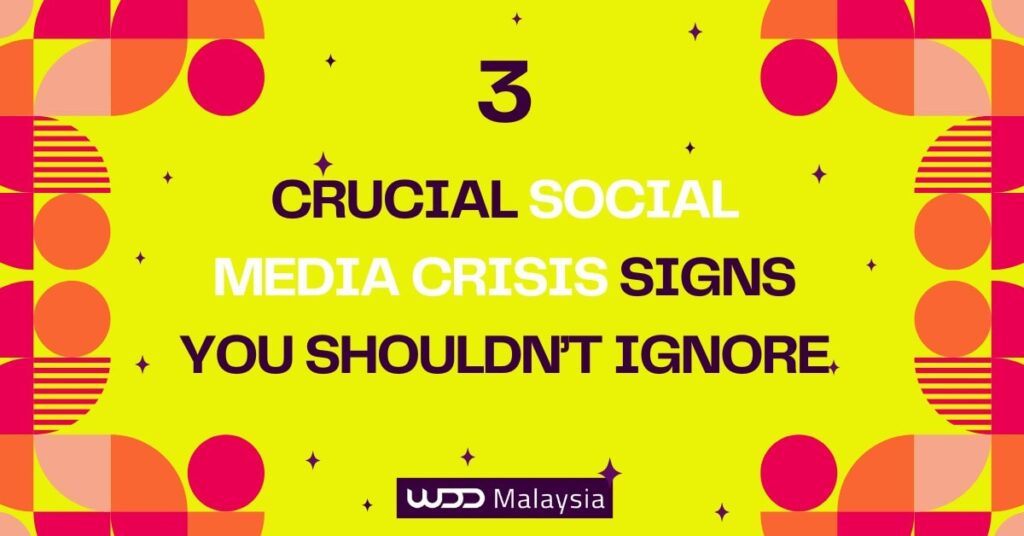
A social media crisis can arise when negative events or comments about your brand spread rapidly online, potentially damaging your reputation. Effective social media crisis management is crucial to protect and maintain trust in your brand. Recent incidents, such as backlash faced by major companies over controversial posts, highlight how quickly a crisis can escalate.
Swift and transparent communication is key, allowing you to address issues head-on and mitigate damage. Social media platforms amplify voices, making vigilance and preparedness essential to handle any crisis that may arise. To navigate a social media crisis effectively, develop a comprehensive crisis management plan and assemble a skilled crisis management team. Crisis management involves dealing with crises in a way that minimizes damage and allows organizations to recover quickly.
Identify potential crisis scenarios in advance and prepare actionable tactics for effective risk management. Regularly monitor social media channels using social listening tools to detect early warning signs and respond promptly. By engaging with stakeholders and maintaining transparency, you can manage crises effectively, safeguarding your brand’s reputation and ensuring business continuity.
Key Takeaways
Develop a comprehensive crisis management plan to guide your response during a social media crisis.
Identify potential crisis scenarios in advance to prepare actionable tactics for effective management.
Build a diverse crisis response team and conduct regular training to ensure readiness for any situation.
Monitor social media channels actively using social listening tools to detect early warning signs of a crisis.
Communicate transparently and acknowledge issues publicly to maintain trust and accountability with your audience.
Engage with stakeholders by responding to comments and questions, demonstrating that you value their concerns.
Conduct a thorough post-crisis review to evaluate your response and update your crisis management plan for future preparedness.
Understanding Crisis Management
Crisis management is a critical component of any organization’s overall strategy. It involves identifying, assessing, and responding to potential crises that could impact the organization’s reputation, operations, or bottom line.
Effective crisis management requires a proactive approach, including identifying potential risks, developing strategies to mitigate them, and having a plan in place to respond to a crisis.
What is Crisis Management?
Crisis management is the process of identifying, assessing, and responding to potential organizational crises, that could impact an organization’s reputation, operations, or bottom line. It involves a range of activities
Pre-Crisis Preparation
Preparing for a social media crisis involves taking proactive steps to safeguard your brand’s reputation and ensure a rapid response. Integrating a robust crisis management process that includes practical training and continuous improvement is crucial. Develop a comprehensive crisis management plan that outlines clear roles and responsibilities, identify potential crisis scenarios, and assemble a skilled crisis management team.
Regular training and simulations are essential to refine strategies and ensure readiness. Utilize social listening tools to actively monitor social media channels for early warning signs, setting up real-time alerts for brand mentions. By implementing these strategies, you enhance your ability to manage crises effectively, protect your brand, and maintain trust with your audience.
Develop a Crisis Management Plan
Effective crisis management plans are essential for navigating social media crises effectively. They act as a strategic roadmap, detailing necessary steps and assigning responsibilities to team members. This ensures swift action during crises, safeguarding your brand’s reputation. By anticipating potential crisis scenarios, you can prepare actionable tactics to address them efficiently.
Assign clear roles within your crisis management team to handle communication and monitor social media channels. This organized approach ensures everyone is ready to act promptly, maintaining trust and protecting your brand during challenging times.
Identify potential crisis scenarios
Begin by pinpointing potential crisis scenarios that could negatively impact your brand’s reputation, such as negative comments, product failures, or controversial posts. Anticipating these scenarios allows you to prepare actionable tactics for effective crisis management, ensuring you’re ready to address issues swiftly and maintain trust with your audience.
Assigning roles and responsibilities within your crisis management plan is crucial for effective social media crisis management. Clearly define who will handle communication, monitor social media channels, and implement strategies to ensure everyone knows their duties and can respond swiftly during a crisis.
This organized approach allows your crisis management team to act promptly, safeguarding your brand’s reputation and maintaining trust with your audience.
Build a Crisis Response Team
A well-prepared crisis response team is crucial for effective social media crisis management. A crisis manager is essential for leading the crisis management team and executing the associated plan. This team executes your crisis response plan and manages situations efficiently. Select team members with diverse skills, including communication, public relations, and social media expertise, ensuring they can tackle various aspects of a crisis.
Conduct regular training and simulations to practice roles, refine strategies, and identify weaknesses in your crisis management plan. By assembling a skilled team and preparing them thoroughly, you enhance your ability to manage crises swiftly and effectively, safeguarding your brand’s reputation and maintaining trust with your audience.
Select team members with diverse skills
Assemble a crisis management team with individuals skilled in communication, public relations, and social media marketing expertise. A diverse team ensures comprehensive handling of various crisis aspects, enhancing your ability to manage potential crises effectively.
Conduct regular training and simulations
Regular training and simulations are crucial for your crisis response team, enabling members to practice roles, refine strategies, and identify weaknesses in your crisis management plan. By regularly engaging in these exercises, your crisis team always stays prepared to tackle potential crises effectively, ensuring swift and coordinated responses that safeguard your brand’s reputation and maintain audience trust.
Monitor Social Media Platforms
Monitoring social media apps and channels is essential for pre-crisis preparation, enabling you to detect early warning signs and respond swiftly. By staying vigilant and utilizing social listening tools, you can track brand mentions and conversations, identify trends, and address potential issues before they escalate.
Setting up real-time alerts for brand mentions allows for quick detection, ensuring you can tackle concerns promptly. This proactive approach enhances your crisis management efforts, safeguarding your brand’s reputation and maintaining trust with your audience.
Use social listening tools
Harnessing the power of social listening tools is essential for effective social media crisis management. These tools enable you to track conversations about your brand across various social media platforms, helping you identify trends, sentiment, and potential issues before they escalate.
By understanding public perception, you can adjust your strategies proactively, ensuring that your crisis management plan remains robust and effective. This proactive approach not only aids in safeguarding your brand’s reputation but also strengthens the trust and transparency with your audience, making your crisis management efforts more efficient and impactful.
Set up alerts for brand mentions
Set up alerts for brand mentions on social media to receive real-time notifications whenever your brand is discussed. This proactive approach allows for quick detection of potential issues, enabling you to address concerns before they escalate into a full-blown crisis. By staying vigilant and responsive, you can effectively manage social media crises, safeguarding your brand’s reputation and maintaining trust with your audience.
Implementing effective social media crisis management strategies is essential for protecting your brand’s reputation. By developing a comprehensive crisis management plan and assembling a skilled crisis response team, you can proactively address potential crises. Stay vigilant by monitoring social media channels using social listening tools to detect early warning signs and respond swiftly.
A well-prepared crisis management plan and a diverse team are your best defenses against potential financial crises. Engage transparently with your audience to maintain trust and accountability, and conduct regular training to ensure readiness. By following these strategies, you enhance your ability to manage crises effectively, safeguarding your brand and ensuring business continuity.
Crisis Detection and Initial Response
Detecting a Crisis
Recognizing a social media crisis early, including those triggered by natural disasters, is crucial for effective management. Stay alert for initial signs like sudden spikes in negative comments or unusual patterns in social media activity, which could indicate a potential crisis. By promptly detecting these early warning signs, you can take swift action to prevent escalation, maintaining your brand’s reputation and trust with your audience.
Differentiating between a minor issue and a full-blown crisis is essential, as not every negative comment leads to a crisis. Evaluate the potential impact on your brand’s reputation by considering the reach and influence of the negative content, helping you decide the appropriate level of response. This proactive approach ensures that your crisis management team is prepared to act promptly, safeguarding your brand and ensuring business continuity.
Recognize early warning signs
Stay vigilant for sudden spikes in negative comments or unusual patterns in social media activity, as these can be early indicators of a potential social media crisis. Promptly detecting these signs allows for swift action to prevent escalation, safeguarding your brand’s reputation and maintaining trust with your audience.
Differentiate between a crisis and a minor issue
Not every negative comment leads to a full-blown social media crisis. It’s crucial to differentiate between minor issues and actual crises by evaluating the potential impact on your brand’s reputation. Assess the reach and influence of negative content to determine the appropriate level of response. This careful risk assessment ensures your crisis management team can act swiftly and effectively, safeguarding your brand’s reputation and maintaining trust with your audience.
Initial Response Steps
Upon detecting a social media crisis, an immediate and strategic response is crucial to contain the situation and minimize potential damage. Swift acknowledgment of the issue publicly demonstrates transparency and accountability, reassuring your audience that you are aware and addressing the situation.
Quickly gather all relevant information to understand the crisis’s root cause and extent, guiding your response strategy effectively. Accurate data is essential for making informed decisions and communicating effectively, ensuring that your crisis management efforts are both proactive and efficient. By following these steps, you can manage a social media crisis effectively, protecting your brand’s reputation and maintaining trust with your audience.
Acknowledge the issue publicly
Swiftly acknowledge the issue publicly to demonstrate transparency and accountability, crucial elements in effective social media crisis management. By addressing the problem promptly, you show awareness and seriousness in handling the situation, which helps maintain trust and credibility with your audience.
Gather all relevant information quickly
In the midst of a social media crisis, swiftly gather all pertinent information to understand the root cause and extent of the issue. This data-driven approach is crucial for guiding your response strategy, allowing you to communicate effectively and make informed decisions. By ensuring accurate and comprehensive information, you enhance your crisis management efforts, safeguarding your brand’s reputation and maintaining trust with your audience.
Effectively managing a social media crisis involves early detection and a strategic initial response. Stay vigilant and proactive to protect your brand’s reputation by monitoring social media channels for early warning signs. A well-prepared crisis management plan and a skilled crisis management team are essential for swift action. By following these steps, you can address issues promptly, ensuring your brand remains trusted and credible in the eyes of your audience.
Communication During a Crisis
In the midst of a social media crisis, effective communication is paramount to managing the situation and preserving your brand’s reputation. Focus on crafting clear and transparent messages tailored to your audience, ensuring honesty and accountability. Utilize the popular social media platforms where the crisis is most active to engage directly with stakeholders, addressing their concerns in real-time and demonstrating your commitment to resolving the issue.
Maintain a calm and professional tone in all interactions to de-escalate tensions and reassure your audience. By implementing these strategies, you can navigate a social media crisis effectively, maintaining trust and protecting your brand’s reputation.
Crafting the Message
Be transparent and honest
Transparency is crucial in crisis communication. Provide honest information about the situation, acknowledge the issue, and explain the steps you’re taking to resolve it. This approach builds trust with your audience and demonstrates accountability, which is essential for effective crisis management.
By maintaining transparency, you can better manage social media crises, safeguard your brand’s reputation, and ensure you maintain business continuity. Tailor your message to your audience, using language and tone that resonate with them, to ensure your communication is effective and well-received.
Tailor the message to the audience
To effectively manage a social media crisis, it’s crucial to develop a comprehensive crisis management plan, assemble a skilled crisis management team, and regularly monitor social media channels for early warning signs. Proactive measures, such as using social listening tools and setting up real-time alerts for brand mentions, allow for swift detection and response to potential crises.
During a crisis, clear and transparent communication tailored to your audience is vital, using the platforms where the crisis is most active to engage directly with stakeholders. Maintaining a calm and professional tone helps de-escalate tensions and reassures your audience. After the crisis, conduct a thorough post-crisis review to evaluate your response, gather feedback, and update your crisis management plan with lessons learned.
This continuous improvement approach ensures readiness for future challenges, safeguarding your brand’s reputation and maintaining trust with your audience.
Crafting a Crisis Communication Strategy
Choosing the Right Channels
Use the platforms where the crisis is unfolding
Identify the social media sites where the crisis is most active and focus your communication efforts there. This strategy allows you to directly engage with the affected audience, addressing their concerns in real-time and demonstrating your commitment to resolving the issue. By concentrating your efforts on the relevant social media platforms with active users, you can efficiently manage the crisis and protect your brand’s reputation.
Consider traditional media if necessary
In some cases, a social media crisis may require broader communication strategies. Utilizing traditional media outlets, such as press releases or interviews, can help you reach a wider audience and reinforce your message, ensuring that your response is comprehensive and effective.
Engaging with the Audience
Engaging with stakeholders is crucial during a crisis. Actively responding to comments and questions on social media demonstrates that you are attentive and considerate of your audience’s concerns. This proactive engagement helps maintain trust and can de-escalate tensions, showing that you are in control and committed to addressing the issue. By implementing these communication strategies, you can navigate a social media crisis more effectively, safeguarding your brand’s reputation and ensuring business continuity.
Maintain a calm and professional tone
Maintaining a calm and professional tone is crucial during social media engagement, especially in a crisis. This approach helps de-escalate tensions and reassures your audience that you are in control. Implementing effective communication strategies is vital for crisis management, as it not only preserves your brand’s reputation but also ensures that your audience remains confident in your ability to handle challenging situations. By staying composed and transparent, you can navigate social media crises more effectively, maintaining trust and credibility with your audience.
Containing and Resolving the Crisis
After navigating a social media crisis, conducting a thorough post-crisis review is essential for evaluating your response’s effectiveness and enhancing future crisis management efforts. It is crucial to measure the impact of the crisis on business operations to refine your strategies and ensure organizational preparedness. This step involves analyzing strategies that worked well and identifying those that fell short, allowing you to refine your crisis management plan.
Gathering feedback from your crisis management team and external stakeholders provides valuable insights into the communication strategies used and the overall handling of the crisis. By incorporating lessons learned, you can update your crisis management plan, adjusting strategies and protocols to address any identified gaps or weaknesses. This proactive approach ensures your brand is better prepared for future social media crises, safeguarding your reputation and maintaining trust with your audience.
Evaluate the Response
After a social media crisis, it’s vital to evaluate your response to enhance future crisis management. Begin by analyzing which strategies effectively mitigated the crisis and which fell short, focusing on the speed of detection and communication efficacy. Gathering feedback from your crisis management team and external stakeholders provides valuable insights into the communication strategies used and the overall handling of the crisis.
This comprehensive evaluation identifies strengths and weaknesses in your crisis management plan, guiding improvements to better prepare for future social media crises, safeguarding your brand’s reputation, and maintaining trust with your audience.
Update Crisis Management Plan
Incorporate insights from your post-crisis evaluation to enhance your crisis management plan. Adjust strategies and protocols based on feedback to address identified gaps, ensuring clear guidelines for crisis communication. This proactive approach strengthens your preparedness for future social media crises, helping to maintain trust with your audience and safeguard your brand’s reputation.
Conducting a thorough post-crisis review is vital for strengthening your social media crisis management efforts, ensuring better preparedness for future challenges and safeguarding your brand’s reputation. Preparation is your strongest ally in handling a social media crisis. Develop a robust crisis management plan, assemble a skilled team, and vigilantly monitor social media channels to detect early signs of trouble.
During a crisis, communicate transparently and engage with your audience on the platforms where the crisis unfolds. Afterward, review your response to learn and improve, maintaining trust with your audience. Continuous improvement in social media presence and crisis management through proactive measures protects your reputation and ensures readiness for any future crises.
FAQ – Frequently Asked Questions
What is a social media crisis?
A social media crisis occurs when negative events or comments about your brand spread rapidly online. This can damage your reputation and require immediate attention to manage effectively.
How can I prepare for a social media crisis?
You can prepare by developing a crisis management plan. Identify potential crisis scenarios and assign roles and responsibilities. Build a crisis response team with diverse skills and conduct regular training and simulations.
How do I detect a social media crisis early?
Monitor social media channels using social listening tools. Set up alerts for brand mentions to recognize early warning signs. Look for sudden spikes in negative comments or unusual patterns in social media activity.
What should I do when a crisis occurs?
Acknowledge the issue publicly and gather all relevant information quickly. This shows transparency and accountability. It also helps you understand the root cause and extent of the crisis.
How should I communicate during a crisis?
Craft clear messages that are transparent and honest. Tailor the message to your audience and use the platforms where the crisis is unfolding. Engage with stakeholders by responding to comments and questions.
Why is it important to engage with the audience during a crisis?
Engaging with the audience shows that you are listening and care about their concerns. It helps maintain trust and can de-escalate the situation. Always maintain a calm and professional tone.
What steps should I take after a crisis?
Conduct a post-crisis review to evaluate your response. Analyze what worked and what didn’t, and gather feedback from stakeholders. Update your crisis management plan by incorporating lessons learned.
How can I improve my crisis management plan?
Use insights from the post-crisis review to adjust strategies and protocols. Ensure your updated plan includes clear guidelines for communication during a serious crisis situation. This will help you maintain trust with your audience in future incidents.
How often should I update my crisis management plan?
Regularly update your crisis management plan to reflect new insights and changes in your organization. This business continuity plan ensures you stay prepared for any future crises and can protect your brand’s reputation.
Can a social media crisis be prevented?
While you cannot prevent all crises, proactive measures can reduce the risk. Monitor social media channels vigilantly and engage with your audience regularly. A robust crisis management plan helps you respond to sudden crises swiftly and effectively.




